BEOGRAD, 28.09.2018. – Svrha sistema projektnog sufinasiranja je da građanima obezbedi nedostajuće medijske sadržaje i proširi pravo na slobodu izražavanja.
Nedorečenošću postojećih zakonskih rešenja i, u ne malom broju slučajeva, svesnom zloupotrebom sistema projektnog sufinansiranja medijskih sadržaja, ceo mehanizam projektnog sufinansiranja, od zaštite javnog interesa u oblasti informisanja, u praksi je pretvoren u svoju suprotnost, u podršku pojedinačnim ili grupnim interesima nasuprot osnovnom cilju – kvalitetnijem i raznovrsnijem informisanju građana.
Suočeni sa sužavanjem medijskog pluralizma, ali i obavezom da je ustavno pravo građana da budu informisani na pravovremen i objektivan način, kao i da svim medijima i novinarima bude obezbeđen ravnopravan položaj, predlažemo niz mera, preporuka i aktivnosti kako bi model sistema projektnog sufinansiranja medijskih sadržaja zaista bio u funkciji javnog interesa i to kroz povećanje transparentnosti i dostupnosti podataka o obimu i plasmanu državnog novca; efikasniju kontrolu potrošenog novca te kroz evaluaciju postignutog; adekvatne sankcije za nenamensko trošenje i sprečavanje korupcije; i dalje unapređenje pluralizma sadržaja. Kako bi se ovaj mehanizam priveo svrsi neophodno je izmeniti Zakon o javnom informisanju i medijima (ZJIM) kao i prateći Pravilnik o sufinansiranju projekata za ostvarivanje javnog interesa u oblasti javnog informisanja.
1. Utvrđivanje konkretnih potreba građana kroz definisanje javnog interesa i utvrđivanje namene konkursa.
Većina konkursa na lokalu formuliše se na način da se prepisuju odgovarajuće odredbe ZJIM i Pravilnika, a bez prave svesti o tome koji segment javnog interesa bi najpre trebalo podržati u zavisnosti od konkretnih potreba stanovništva u konkretnoj lokalnoj sredini.
Veoma su retke analize potreba za nedostajućim medijskim sadržajima od javnog interesa koji doprinose podizanju kvaliteta javne debate o svim relevatnim društvenim pitanjima.
Preporuka: Propisivanje obaveze organima javne vlasti da sprovode periodične analize potreba za medijskim sadržajima, koje će sadržati i ekonomsku analizu troškova za proizvodnju takvih sadržaja, na nacionalnom nivou, pokrajinskom i nivou lokalne samouprave, uz kontinuirano učešće građana.
2. Sastav i način rada konkursnih komisija
Izveštaji “Bela knjiga projektnog sufinansiranja” [1] i “Pravna analiza projektnog sufinansiranja” [2] su mapirali veliki broj problema koji se odnose na rad stručnih komisija, i proces odlučivanja o dodeli sredstava.
Određeni broj problema proizilazi iz nedorečenosti regulative. Najčešće je reč o definisanju pojma „medijskog stručnjaka“ koji može da učestvuje u radu stručnih Komisija. Nije, zatim, propisana zabrana učešća u radu stručne komisije za određenu kategoriju lica koja su u sukobu interesa ili obavljaju javnu funkciju.
Neohodno je uređenje osnovnih pravila rada stručne komisije, kao i propisivanje zabrane preinačenja odluke komisije o dodeli sredstava od strane organa javne vlasti.
PREPORUKA: Unapređivanje rada stručne komisije i smanjivanje arbitrarnosti u radu tih komisija putem definisanja pojma “medijski stručnjak”, propisivanjem pravila o radu stručne komisije, zabrane preinačenja predloga stručne komisije od strane organa javne vlasti, i preciziranja “sukoba interesa”.
3. Odgovornosti za sprovođenje konkursa
Ovo pitanje je jedno od najproblematičnijih, jer prevazilazi pitanje projektnog sufinansiranja (pošto dotiče pitanje nadzora postupanja u skladu sa ZJIM uopšte), a delimično se dotiče i drugih zakona koji se nalaze van oblasti medija. Uočene problematične tačke ovog procesa kada je u pitanju odgovornost za spovođenje odnosi se pre svega na:
- nadzor nad zakonitošću postupanja lokalnih samouprava u primeni odredaba o konkursnom sufinansiranju;
- kontrolu državne pomoći u oblasti projektnog sufinansiranja;
- neadekvatan sistem sankcija.
PREPORUKA: Poboljšanje mehanizama kontrole putem saradnje nadležnih organa, te putem propisivanja nadležnosti Upravne inspekcije u procesu projektnog sufinansiranja, ali i propisivanje većeg broja sankcija za kršenje zakona i višeg iznosa novčane kazne kod utvrđenog prekršaja.
4. Utvrđivanje ukupnog iznosa sredstava koji se dodeljuje na konkursuU praksi projektnog sufinansiranja Republike, Pokrajine i lokalnih samouprava nisu utvrđeni kriterijumi o iznosima koji će biti raspoređeni na konkursu. Ne primenjuje se “troškovni princip” kao rezultat prethodne ekonomske analize, pa se iznosi koji se raspodeljuju kreću od nekoliko stotina ili desetina hiljada dinara do desetine miliona.
PREPORUKA: Određivanje maksimalnih i minimalnih iznosa koji se opredeljuju na konkursu, u skladu sa ekonomskom analizom i uz primenu “troškovnog principa” koja bi imala za cilj da se sredstva koja dodeljuju organi javne vlasti što više vežu za realne troškove koje mediji imaju u proizvodnji medijskih sadržaja od javnog interesa.
5. Transparentnost procesa i ocena ispunjenosti svrhe projektnog sufinansiranjaDosadašnja praksa u primeni projektnog sufinansiranja je pokazala da je vrlo upitna transparentnost čitavog procesa – od predkonkursne faze, kada bi trebalo da se utvrde teme od javnog interesa, preko konkursne faze, odnosno sprovođenja samog konkursa, do postkonkursne faze, odnosno izveštavanje javnosti o ispunjenosti svrhe podržanih projekata. Naime, predkonkursnu fazu sprovodi tek nekoliko lokalnih samouprava. U konkursnoj fazi, propisanu obavezu objavljivanja većine dokumenata koji su važni za ovaj proces ne poštuju svi organi. Često se dešava da neke lokalne samouprave ne objavljuju uopšte dokumentaciju ili je objavljuju na neadekvatan način. Postkonkursna faza ili faza evaluacije projekata putem dostavljanja narativnih i finansijskih izveštaja je apsolutno netransparentna jer izveštaji nisu dostupni javnosti. S druge strane, taj mehanizam nije u dovoljnoj meri doprineo da se adekvatno vrednuje ostvarenost ciljeva javnog interesa kroz finansiranje određenog medijskog sadržaja. Zbog toga taj sistem treba dopuniti i to pojašnjavanjem ispunjenja obaveze interne analize, ali i uvođenjem kategorije eksterne analize koja će pomoći u što boljem sagledavanju ostvarenosti ciljeva javnog interesa u oblasti javnog informisanja.
PREPORUKA: Unapređivanje transparentnosti procesa projektnog sufinansiranja putem javnih rasprava, objavljivanje svih dokumenata vezanih sa konkursne procedure, te objavljivanje narativnih i finansijskih izveštaja. Neophodno je uvesti analizu ostvarenih ciljeva javnog interesa pojašnjavanjem pravila interne i eksterne evaluacije.
6. Informisanje manjinskih zajednica i drugih ranjivih grupa
Projektno sufinansiranje medijskih sadražaja od interesa za javnost u dosadašnjoj praksi nije imalo većeg efekta kada je u pitanju informisanje manjinskih zajednica, kao i drugih ranjivih grupa (poput osoba sa invaliditetom), budući da se radi o specifičnoj meri afirmativne akcije u cilju ostvarivanja ljudskih prava manjinskih zajednica i drugih ugroženih grupa. Kako se ova podrška kroz “opšte konkurse” se nije pokazala kao adekvatno rešenje, ima smisla dati “posebne garancije” za ostvarivanje tog segmenta javnog interesa u oblasti javnog informisanja, kao mere afirmativne akcije za koje nije potrebna izmena zakona. PREPORUKA: Definisati mere “afirmativne akcije” prema medijskim sadržajima od javnog interesa namenjenih manjinskim zajednicama i drugim ranjivim grupama, odnosno razdvojiti opšte konkurse od konkursa koji se odnose na medijske sadržaje namenjene nacionalnim manjinama, odnosno informisanju osoba sa invaliditetom i drugih ranjivih grupa. Problemi projektnog sufinansiranja ne znače nužno da je sistem uspostavljen medijskim propisima loš, te da u potpunosti treba odustati od ovakvog načina raspodele sredstava.
Drugim rečima, sistem zahteva određene izmene regulative, dok sa druge strane zahteva i postojanje volje za pravilnom implementacijom, odnosno primenom u skladu sa postavljenim ciljevima medijske politike.
Ceo dokument “Uređenje projektnog sufinansiranja medijskih sadržaja” možete požete pogledati u prilogu.



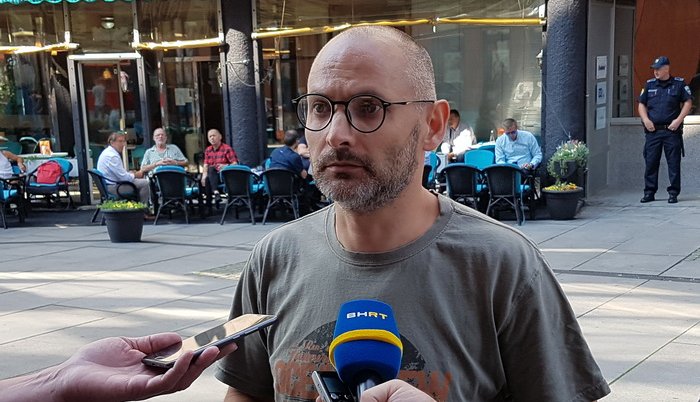
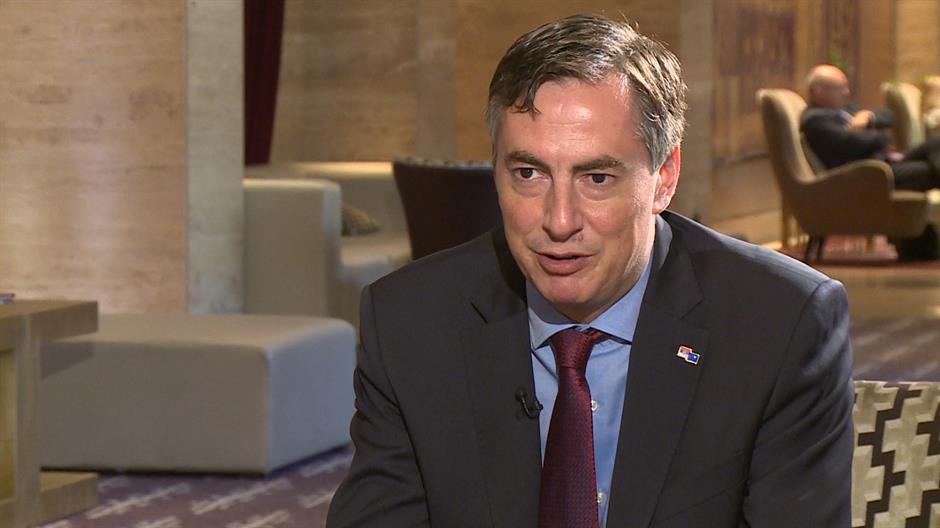

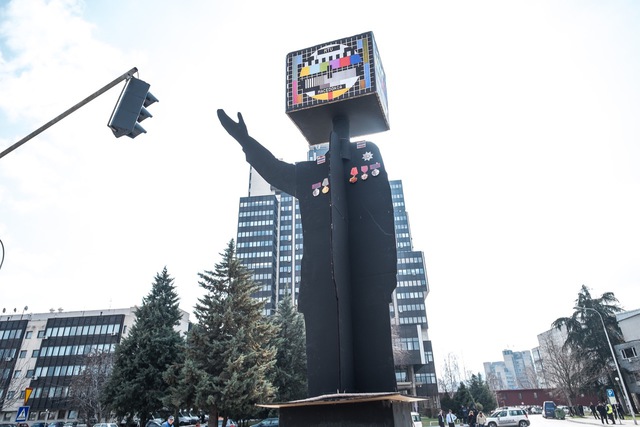
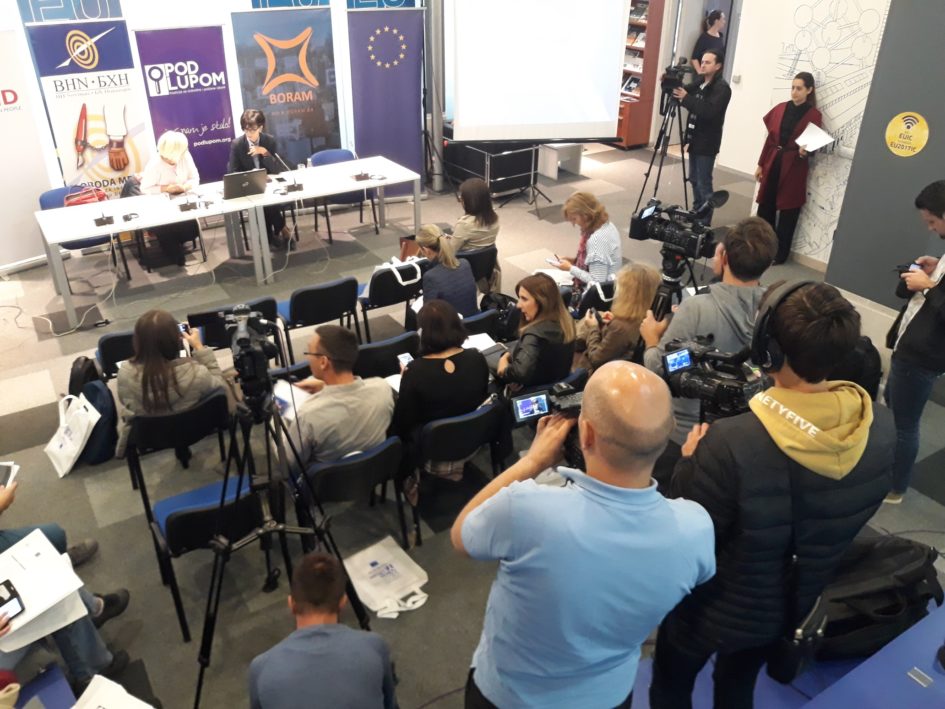
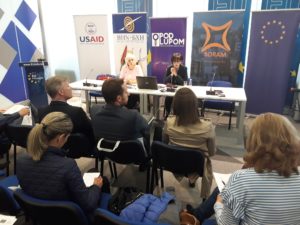 “Of the analyzed 10,602 media content, which were published in this period, the election content was 18%. Private television stations – 28.05% and the small public radio stations – 11.59%, said Turcilo, adding that private media (TV stations, press and portals) reported more about electoral campaign than public media.
“Of the analyzed 10,602 media content, which were published in this period, the election content was 18%. Private television stations – 28.05% and the small public radio stations – 11.59%, said Turcilo, adding that private media (TV stations, press and portals) reported more about electoral campaign than public media.
